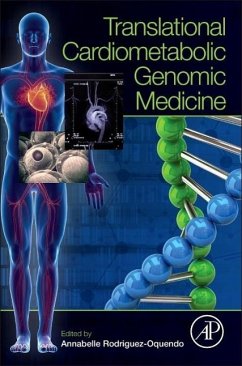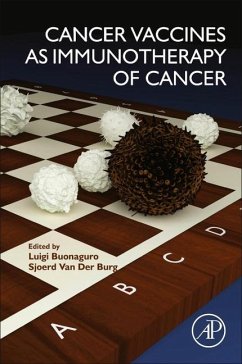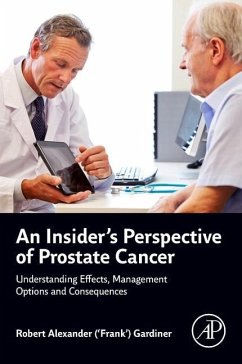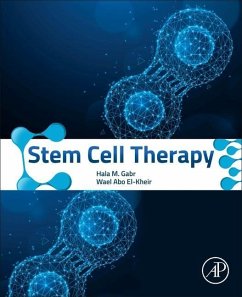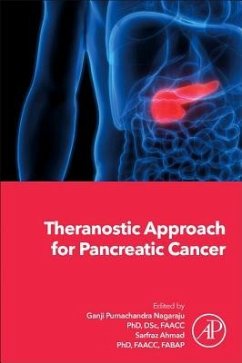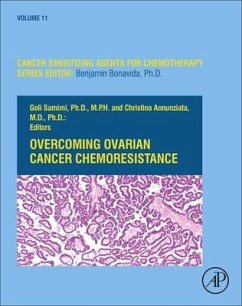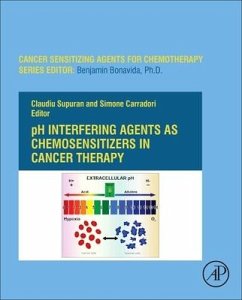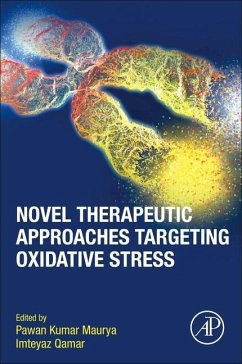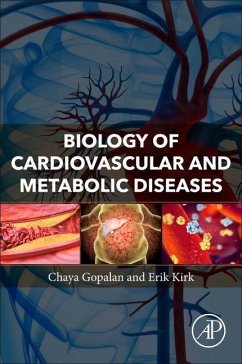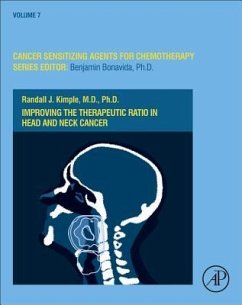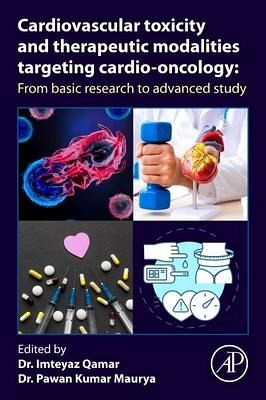
Cardiovascular Toxicity and Therapeutic Modalities Targeting Cardio-Oncology
From Basic Research to Advanced Study
Herausgegeben: Qamar, Imteyaz; Maurya, Pawan Kumar

PAYBACK Punkte
55 °P sammeln!
Cardiovascular Toxicity and Therapeutic Modalities Targeting Cardio-Oncology: From Basic Research to Advanced Study analyzes the emerging the field of cardio-oncology, reviewing recent advancements in the field, discussing how to monitor and treat cancer survivors for cardiotoxicity, and identifying potential cardiac side effects in novel cancer therapies. By adopting a translational approach, the book first comprehensively covers the basic science, mechanisms and concepts, which is followed by advanced state-of-art of cardio-oncology. Other sections cover tyrosine kinase inhibitors, Anthracyc...
Cardiovascular Toxicity and Therapeutic Modalities Targeting Cardio-Oncology: From Basic Research to Advanced Study analyzes the emerging the field of cardio-oncology, reviewing recent advancements in the field, discussing how to monitor and treat cancer survivors for cardiotoxicity, and identifying potential cardiac side effects in novel cancer therapies. By adopting a translational approach, the book first comprehensively covers the basic science, mechanisms and concepts, which is followed by advanced state-of-art of cardio-oncology. Other sections cover tyrosine kinase inhibitors, Anthracyclines, and biomarkers in cardiotoxicity induced by chemotherapeutic drugs, noninvasive cardiovascular imaging techniques, radiotherapy induced cardiovascular, and more.
Anti-cancer treatment is associated with serious cardiovascular adverse events, including arterial and pulmonary hypertension, supraventricular and ventricular arrhythmias, systolic and diastolic cardiac dysfunction and coronary artery disease. Progress in cancer therapy over the past decades improved long-term survival but increased cancer therapy-related cardiotoxicity. Both traditional chemotherapeutic agents and newer therapies have demonstrated profound cardiovascular toxicities. It is important to understand the mechanisms of these toxicities to establish strategies for the prevention and management of complications-arrhythmias, heart failure, and even death.
Anti-cancer treatment is associated with serious cardiovascular adverse events, including arterial and pulmonary hypertension, supraventricular and ventricular arrhythmias, systolic and diastolic cardiac dysfunction and coronary artery disease. Progress in cancer therapy over the past decades improved long-term survival but increased cancer therapy-related cardiotoxicity. Both traditional chemotherapeutic agents and newer therapies have demonstrated profound cardiovascular toxicities. It is important to understand the mechanisms of these toxicities to establish strategies for the prevention and management of complications-arrhythmias, heart failure, and even death.



